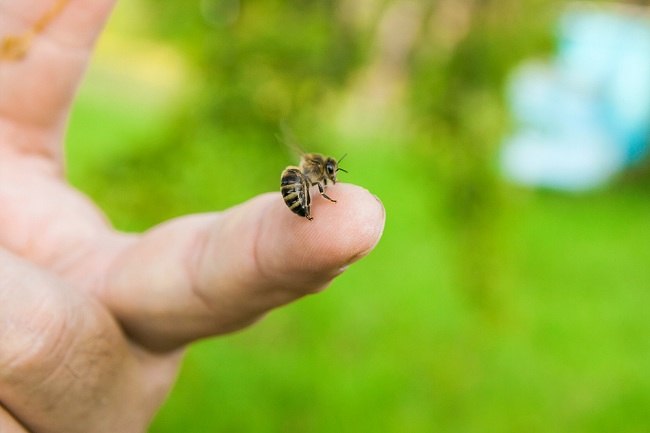How to Take Care of a Wasp Sting Using Simple Treatments
Generally, someone who is stung by a wasp, a bee, or a fire ant, will experience an allergic reaction. The sting of some insects apparently most often triggers allergies, although most people do not experience it. If you experience an allergic reaction, see the review on how to treat the following swollen wasp stings. Wasps, like bees, are animals equipped with stingers as a means of survival. Stings on wasps contain poisons, which are located in the stomach of female insects.

When a bee or wasp stings you, the poison is injected into the stung part of the body. The poison then causes direct injury to the human body in an area close to the sting. Generally, bees can only sting their enemies once. While wasps can sting whatever is considered an enemy, many times. The symptoms caused when you are stung by wasps include intense pain or a painful sensation in the stinging part, redness, swelling, and itching.
Although most insect stings, bees, wasps, or fire ants, only cause mild complaints and symptoms, in some conditions they can cause serious medical problems and even death. This can happen to certain people who have an immune system that is too sensitive to wasp poisons, so when stung, the person's body reacts excessively to the incoming wasp poison.
This allergic reaction can occur throughout the body, and can even cause death, because anaphylaxis occurs, which is a severe allergic reaction that is fatal. Most deaths from poison stings occur within the first hour after a sting occurs.
Here's How to Take Care of Wasp Sting
Treatment for wasp stings depends on the severity of your condition. You need to know that there is no special antidote (antidote) available to fight poisons that are stung by insects.
Here's how to treat swollen wasp stings, from mild to moderate allergic reactions.
- Wash the affected part with soap and water to remove as much poison as possible.
- Cold compresses the stung part to reduce pain and swelling.
- Keep your wound clean and dry, to prevent infection.
- Cover with gauze if needed.
- Use a hydrocortisone cream or calamine lotion, if itching or skin irritation interferes.
- You can also use painkillers without a prescription, such as ibuprofen. Antihistamine drugs can also reduce itching due to wasp stings.
- In addition, you can also consider tetanus injections, a few days after the sting occurs.
Whereas if you experience a severe allergic reaction after being stung by a wasp, how to treat it can include the addition of epinephrine to calm your immune system; pulmonary cardiac resuscitation ( CPR ) if breathing pauses; and administration of oxygen, corticosteroids, or other drugs to improve your breathing.
If you are stung by a wasp, apply some of the methods outlined above. Besides knowing how to treat swollen wasp stings, you also need to know a few things to prevent being stung by wasps, such as wearing shoes and socks when outdoors; wear long-sleeved shirts and trousers when in areas with lots of trees or while in the forest; and avoid wearing perfumes or brightly colored clothes that can attract insects.
So how to treat a wasp sting that has swollen. If you have done some of the methods above but the swelling does not heal and gets worse, contact your doctor immediately to get the right treatment.